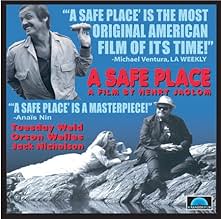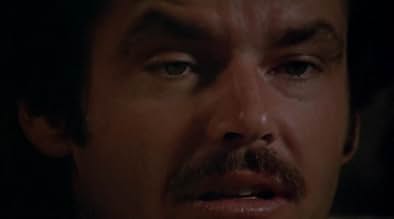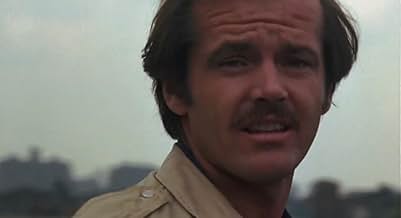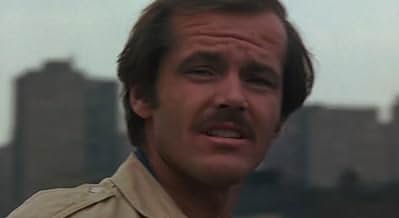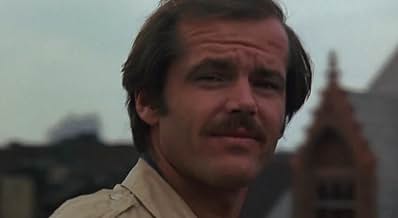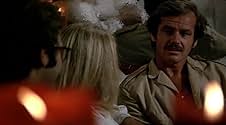IMDb RATING
4.9/10
1.4K
YOUR RATING
A strange young woman lives in a fantasy world where she can never grow up.A strange young woman lives in a fantasy world where she can never grow up.A strange young woman lives in a fantasy world where she can never grow up.
- Awards
- 1 nomination total
Phil Proctor
- Fred
- (as Philip Proctor)
Rachel Harlow
- Noah's Friend
- (as Richard Finnochio)
Wendy Girard
- Girl at the Party
- (uncredited)
- Director
- Writer
- All cast & crew
- Production, box office & more at IMDbPro
Featured reviews
A strange young woman (Tuesday Weld) lives in a fantasy world where she can never grow up.
Henry Jaglom's directorial debut was a "critical and box-office disaster". Time magazine called the film "pretentious and confusing", a film that "suggests that the rumors of his expertise were greatly exaggerated, or at least that it does not extend to directing." Apparently, for the critics, not even the presence of the incredible Orson Welles or Jack Nicholson could save this one.
Author Anais Nin was perhaps the most kind. She called the film "an impressionistic film, an X ray of our psychic life, which gives an insight instantly into the secret self." She called it a "masterpiece", and praised it for its dreamlike quality that could only be captured on film.
Henry Jaglom's directorial debut was a "critical and box-office disaster". Time magazine called the film "pretentious and confusing", a film that "suggests that the rumors of his expertise were greatly exaggerated, or at least that it does not extend to directing." Apparently, for the critics, not even the presence of the incredible Orson Welles or Jack Nicholson could save this one.
Author Anais Nin was perhaps the most kind. She called the film "an impressionistic film, an X ray of our psychic life, which gives an insight instantly into the secret self." She called it a "masterpiece", and praised it for its dreamlike quality that could only be captured on film.
The Criterion DVD and BluRay of this film contains a 2009 interview with writer/director Henry Jaglom that is worth watching after (or before) anyone views this film. This film is a definite product of its time and was released as part of the BBS wave that was taking Hollywood by storm in the late '60s and early '70s (Easy Rider, Five Easy Pieces, and Last Picture Show were some other films released during the BBS wave). Jaglom explains that his film was initially a play and the goal with his career (A Safe Place was his first movie) was to write and direct films that are from a woman's point-of-view. He continued to make very low budget films into the '00s (budgets lower than even John Sayles), including a few that starred his once-girlfriend Karen Black. This background helps understand this film, which is a unique watch but requires tremendous patience. Orson Welles' presence in the film is basically restricted to him channeling Topol, doing magic tricks in Washington Square, and commanding zoo animals to "disappear." Tuesday Weld is Susan (currently using the name Noah), an imaginative hippie who dwells on her childhood and falls into an unusual relationship with a stranger she meets in Central Park. Jack Nicholson arrives to stir the pot as Susan/Noah's ex. The film is more art than narrative and plays like an adult version of "Head," the Monkees movie that was also part of the BBS movement. A time capsule piece which will be more appreciated by independent American film lovers than the casual viewer.
This experimental piece of work, from Henry Jaglom, is actually something of a gem, if not for it's unique direction, for the typically stunning performance from Tuesday Weld. Weld is wonderful in her characterization of a simple, juvenile young woman, caught in the limbo between innocence and adulthood. This film is from the period which I consider Weld's peak. She is beautiful, charming and completely earnest in her delivery.
Others in the cast are interesting at best. Orson Welles is good as the father figure in Weld's life. Philip Proctor is not much acting wise, but at least he has a pleasant voice. That seems to have helped his career in the years following this film. Jack Nicholson is his typical cocky, slimy character in this one. I didn't feel his acting was anything new here, but his presence makes for an interesting triangle relationship.
The editing is choppy, utilizing audio and image clips flashing by, altered, and repeated again. It would seem to get old after a while, and it does to some degree, but it's effective nonetheless. There are some good vignettes here and there throughout the film, namely a scene where Weld describes to Proctor the importance of telephone exchanges. Not every actress could pull this off well, but Weld does so with empathy and charm...brilliant! The Ouija board scene also stands out, as do the ones of Weld and Welles in Central Park Zoo.
A fascinating and surprisingly engaging film. If for no other reason, it's worth watching for Weld's performance.
Others in the cast are interesting at best. Orson Welles is good as the father figure in Weld's life. Philip Proctor is not much acting wise, but at least he has a pleasant voice. That seems to have helped his career in the years following this film. Jack Nicholson is his typical cocky, slimy character in this one. I didn't feel his acting was anything new here, but his presence makes for an interesting triangle relationship.
The editing is choppy, utilizing audio and image clips flashing by, altered, and repeated again. It would seem to get old after a while, and it does to some degree, but it's effective nonetheless. There are some good vignettes here and there throughout the film, namely a scene where Weld describes to Proctor the importance of telephone exchanges. Not every actress could pull this off well, but Weld does so with empathy and charm...brilliant! The Ouija board scene also stands out, as do the ones of Weld and Welles in Central Park Zoo.
A fascinating and surprisingly engaging film. If for no other reason, it's worth watching for Weld's performance.
Only in the post-"Easy Rider" early 1970s could a film like this be made by a major Hollywood studio. Totally devoid of anything resembling a plot, "A Safe Place" will probably seem incomprehensible to most. But if you already have an appreciation for the 1950s-1960s works of Fellini, Antonioni or Godard, come on in. You'll feel right at home in this "Safe Place."
Henry Jaglom was the unsung hero amongst the circle of friends that brought us "Head," "Easy Rider," "Five Easy Pieces," and several other lesser-known classics of the era. Jaglom is more responsible for the success of "Easy Rider" than Dennis Hopper, as he took Hopper's three-hour cut--a mishmash of flashbacks, flash-forwards and art- damaged nonsense--and shaped it into the legendary film it is today. His close relationship with Hopper, Jack Nicholson, Bob Rafelson, Bert Schneider, and others gave him a chance to write and direct his own movie for Columbia Pictures.
Jaglom in turn delivered this dream narrative starring Tuesday Weld as a young woman who copes by retreating into isolationism and fantasy. Orson Welles pops up here and there as a magician who represents a physical emodiment of her retreat from the world. Or does he only exist in her head?
It's best not to ask questions like that. Free your mind, sit back, and take in the feeling and mood. Where Hopper failed with his cut of "Easy Rider" and "The Last Movie", Jaglom effortlessly succeeds with such lofty and artsy ambitions. "A Safe Place" coasts by like a gentle dream in an afternoon nap--full of beautiful, detached imagery, illogical but comforting.
"A Safe Place" is a beautiful relic of a brief time in American cinema. Even Jaglom-- always on the fringe of mainstream cinema--would never make anything like this again, as he later developed the documentary/verite style which has become his trademark.
Henry Jaglom was the unsung hero amongst the circle of friends that brought us "Head," "Easy Rider," "Five Easy Pieces," and several other lesser-known classics of the era. Jaglom is more responsible for the success of "Easy Rider" than Dennis Hopper, as he took Hopper's three-hour cut--a mishmash of flashbacks, flash-forwards and art- damaged nonsense--and shaped it into the legendary film it is today. His close relationship with Hopper, Jack Nicholson, Bob Rafelson, Bert Schneider, and others gave him a chance to write and direct his own movie for Columbia Pictures.
Jaglom in turn delivered this dream narrative starring Tuesday Weld as a young woman who copes by retreating into isolationism and fantasy. Orson Welles pops up here and there as a magician who represents a physical emodiment of her retreat from the world. Or does he only exist in her head?
It's best not to ask questions like that. Free your mind, sit back, and take in the feeling and mood. Where Hopper failed with his cut of "Easy Rider" and "The Last Movie", Jaglom effortlessly succeeds with such lofty and artsy ambitions. "A Safe Place" coasts by like a gentle dream in an afternoon nap--full of beautiful, detached imagery, illogical but comforting.
"A Safe Place" is a beautiful relic of a brief time in American cinema. Even Jaglom-- always on the fringe of mainstream cinema--would never make anything like this again, as he later developed the documentary/verite style which has become his trademark.
Henry Jaglom is a director I've heard about before, but had never seen one of his films. He makes a film every couple of years, they play in like three cities in America, and no one seems to like them. A Safe Place was his first film, adapted from his own play, which he wrote in 1964. Tuesday Weld plays an insufferable hippie chick who doesn't want to grow up. Phil Proctor is a square who wants desperately to bone her, so he puts up with her nonsense (he knows that she's half crazy, but that's why he wants to be there). Eventually, a much more exciting Jack Nicholson shows up and steals her away. Orson Welles plays a magician who occasionally enchants Weld with his magic. Gwen Welles (whom you might remember from Altman's films California Split and Nashville), in her film debut, also appears and rambles on about her dreams of being sexually assaulted. The film is pretty, and that prettiness is very much augmented by Tuesday Weld's enchanting beauty. But, honestly, there's not much going on here. It's very repetitive (there are some nice, old songs on the soundtrack, but each of them plays all the way through like three times), and, well, boring.
Did you know
- TriviaJack Nicholson appeared in this film mainly as a favor to director Henry Jaglom. Nicholson did the film for no pay, his only demand was that he be given a new color television set.
- GoofsThe opening credits read: "Introducing Jack Nicholson." Jack Nicholson had already appeared in 22! feature films before this one.
- Quotes
Opening Credits: Introducing Jack Nicholson
- Crazy creditsThe opening credits read: "Introducing Jack Nicholson." Jack Nicholson had already appeared in 22! feature films before this one.
- ConnectionsFeatured in Can She Bake a Cherry Pie? (1983)
- How long is A Safe Place?Powered by Alexa
Details
- Release date
- Country of origin
- Official site
- Language
- Also known as
- Ein Zauberer an meiner Seite
- Filming locations
- Production companies
- See more company credits at IMDbPro
- Runtime
- 1h 34m(94 min)
- Color
- Sound mix
- Aspect ratio
- 1.85 : 1
Contribute to this page
Suggest an edit or add missing content


